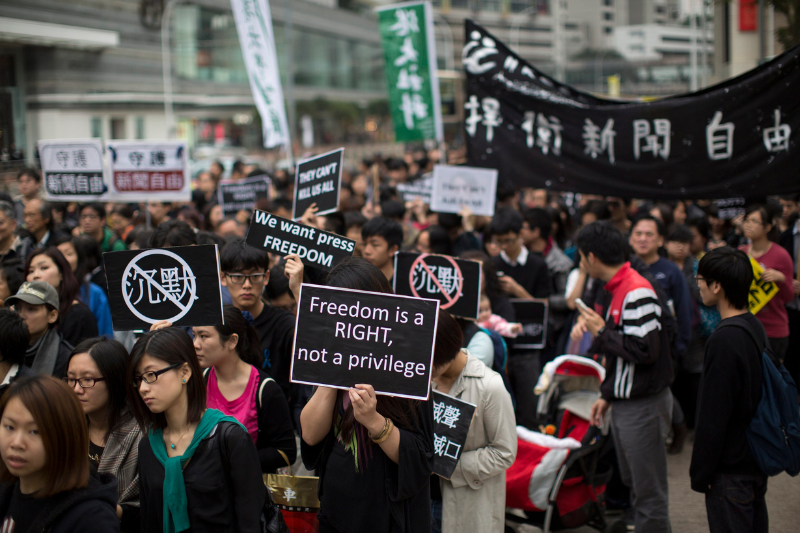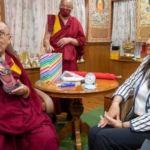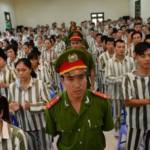
activists continue to raise voices against china government despite intimidation campaigns
China’s pattern of intimidation and threats against activists, protesters, dissidents, and their families has continued to raise concerns about human rights and freedom of expression. Despite facing grave risks, brave individuals in China have persisted in their efforts to hold the Chinese government accountable for its actions and seek justice.
Over the years, China has employed a range of tactics to silence dissent and suppress voices critical of the government. These tactics include harassment, surveillance, arbitrary arrests, detention without trial, and even forced disappearances. Such methods not only affect the targeted activists but also send a chilling message to others who may consider raising their voices against the government.
One notable case of continued resilience is that of Liu Xiaobo’s widow, Liu Xia. Liu Xiaobo, a prominent pro-democracy activist, was awarded the Nobel Peace Prize in 2010, infuriating the Chinese government. After Liu Xiaobo’s death in 2017, Liu Xia was placed under house arrest, isolated from the world, and denied communication with the outside world. However, despite the immense pressure, Liu Xia refused to be silenced. Through covert channels and with the help of international human rights organizations, she managed to keep her voice alive, exposing the Chinese government’s cruel treatment and calling for justice for her late husband.
Another inspiring figure is Chen Guangcheng, a blind human rights lawyer who drew attention to forced abortions and sterilizations under China’s one-child policy. In 2012, after escaping house arrest, Chen sought refuge in the U.S. Embassy in Beijing. Although he now resides in the United States, Chen’s advocacy has not stopped. He continues to advocate for human rights in China and remains a vocal critic of the Chinese government’s oppressive policies.
Furthermore, the plight of Hong Kong’s democracy activists remains a concerning issue. After the imposition of the National Security Law in 2020, which further eroded Hong Kong’s autonomy, many prominent activists faced arrests, trials, and imprisonment. Despite the crackdown, activists like Joshua Wong and Agnes Chow, who were sentenced to prison on dubious charges, continue to voice their calls for democracy and human rights in Hong Kong.
The Chinese government’s intimidation campaigns have also extended to the families of activists and dissidents. Relatives have been subjected to surveillance, harassment, and even detention as a means to exert control over the activists and deter others from following their example. Yet, amidst these oppressive measures, some family members have shown immense courage in standing by their loved ones’ principles.
Keep Reading
One such instance is the family of Ilham Tohti, an Uighur academic and outspoken critic of China’s treatment of ethnic minorities. Tohti was sentenced to life in prison in 2014 on charges of separatism. Despite their fears of repercussions, his family has continued to advocate for his release and speak out against the Chinese government’s human rights abuses in Xinjiang.
In the face of these ongoing intimidation campaigns, Chinese activists, protesters, and dissidents have found strength in solidarity and international support. Human rights organizations, foreign governments, and activists worldwide have amplified their voices, drawing attention to the human rights violations in China and pressuring the government to change its course.
Despite the risks, there are signs that the Chinese government’s tactics are not as effective as they may hope. Many activists and dissidents have demonstrated unwavering determination, understanding that the only way to challenge the status quo is by continuing their advocacy, even in the face of adversity.
The international community’s support has been crucial in providing protection and advocating for the rights of Chinese activists. By shining a spotlight on the intimidation campaigns and human rights abuses in China, the world has sent a clear message that these actions are unacceptable.
However, challenges remain, and the Chinese government’s grip on dissent remains tight. As the global community continues to hold China accountable, it is essential to support and protect those brave individuals who dare to speak out. Only through persistent efforts can there be hope for change and the realization of human rights and freedom of expression for all Chinese citizens.
The Chinese government’s intimidation campaigns will persist in 2023. Despite these oppressive tactics, many individuals continue to hold the government accountable for its actions without fear. Through resilience, international support, and solidarity, these activists remain a powerful force in advocating for human rights and challenging China’s repressive policies. The world must remain vigilant and committed to defending the fundamental rights and freedoms of all individuals, regardless of the obstacles they face.









